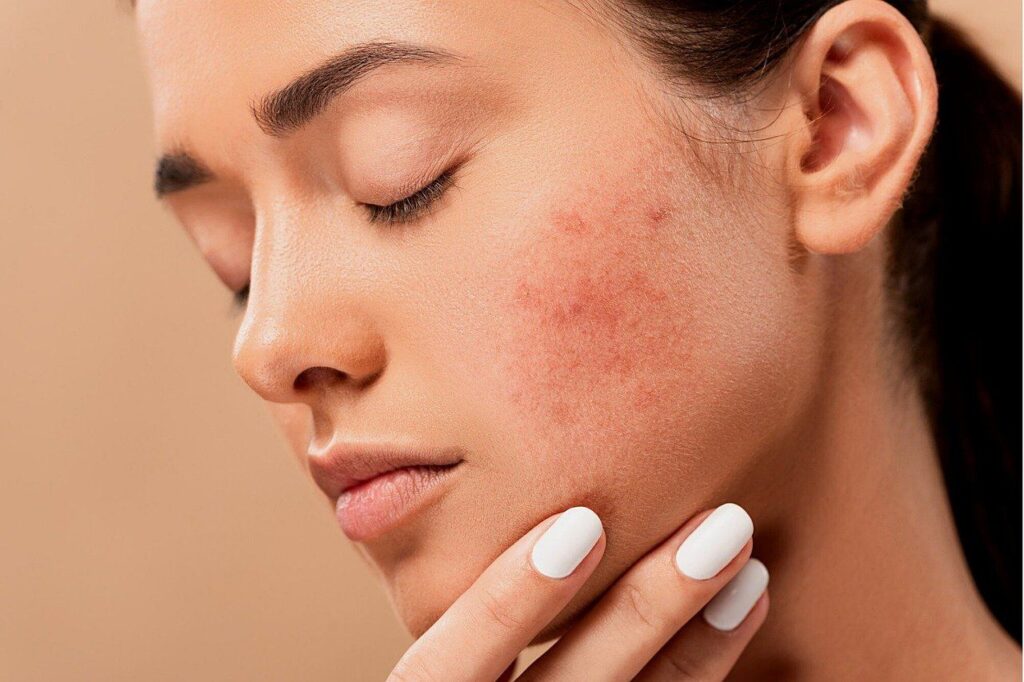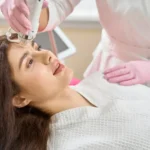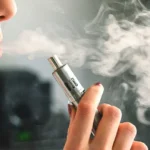If you have acne, then most likely you spend lots of your time thinking of acne scar treatments and attempting to lessen your breakouts’ severity. Sadly, a few of the common methods patients use to manage or treat their acne might actually cause you more harm than good. Below are typical skincare mistakes that might worsen your acne dilemma.
Mistake #1: Scrubbing Your Face
It is normal for people with acne to attempt to “scrub their pimples away” by using abrasive cleansers or rough washcloths. But actually, all this frequent scrubbing makes your situation worse. Rough washcloths or facial scrubs could irritate your inflamed skin, which might then result in more breakouts and worsening redness.
You will have a greater chance of fighting acne if you stay gentle when you cleanse your skin. We suggest wetting the skin using lukewarm water and then using the fingertips to put cleaner to the face. Get your face rinsed using more lukewarm water, and then dry it using a soft towel.
Mistake #2: Avoiding Moisturizers
Since acne is usually associated with oily skin, it might look like not using moisturizers would be a better idea. Nevertheless, using a moisturizer after washing your face is a vital skincare step that shouldn’t be skipped–even if you are prone to breakouts. Moisturizer assists in loosening the sebum that accumulates within the pores, which causes less chance for pimples to form. You just have to be cautious to apply the correct moisturizer.
Search for a gentle moisturizer that’s advised particularly for acne sufferers. Most of the products are oil-free and water-based. Your chosen product must be described “non comedogenic,” which means it would not cause breakouts and clog pores.
Mistake #3: Popping Pimples
Though numerous acne patients know that it’s a terrible habit, they still squeeze and pop their pimples. Break this habit permanently today. Even though popping your spot might offer a bit of relief and make your pimple appear better in the meantime, it only gives more access to future breakouts since it delivers acne-causing bacteria into available pores.
Rather than ignoring acne, consider this: every time you pop a pimple, you are effectively trading it in for 3 or 4 others later on!
Mistake #4: Not Giving New Products a Chance to Work
For a few days, you attempt a new acne care routine, but your skin doesn’t appear any better, so you abandon it and try another. Is this something you’re used to? Many acne patients go through a lot of washes, moisturizers, and spot treatments in a short period of time.
The issue is that when you start with a new skincare routine, it might take eight or even twelve weeks for your skin to improve. In other words, if you quit after a few weeks or days, you do not know if the treatment was effective. Before deciding whether or not a new routine is effective, try it for two months at least.
Mistake #5: Using Too Many Products At Once
Acne treatments, particularly those containing active chemicals such as salicylic acid and benzoyl peroxide, are drying and abrasive on the skin, so avoid them. Your skin may get inflamed if you utilize too many treatments simultaneously, and you may experience more breakouts as a consequence.
You don’t need to apply an astringent, makeup, medicated moisturizer, or spot treatment if you’re using an acne wash. Unless your dermatologist instructs you differently, stick to 1 medicated product simultaneously and utilize mild, non-medicated versions of any other skin care products.
Mistake #6: Not Watching What You Eat
The hamburger and chocolate bar won’t cause your acne, but poor eating habits will. Drink lots of water daily to keep hydrated, and eat a well-balanced diet high in lean meats, vegetables, and fruit. Limit sugars and carbs in your diet and don’t eat artificially sweetened beverages.
You should have a better chance of getting your acne to be more manageable if you avoid the tips listed above. If your breakouts persist, don’t hesitate to seek acne scar treatments or medical guidance from your cosmetic doctor.









